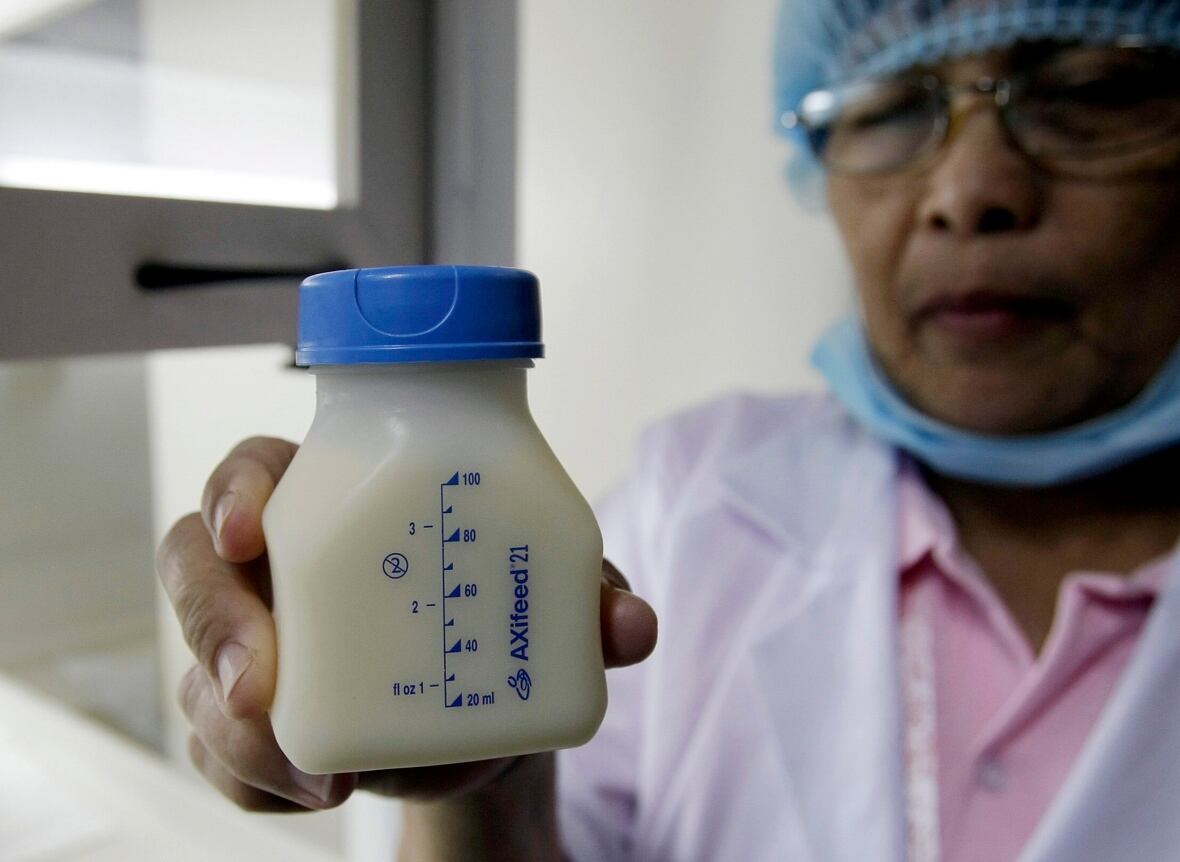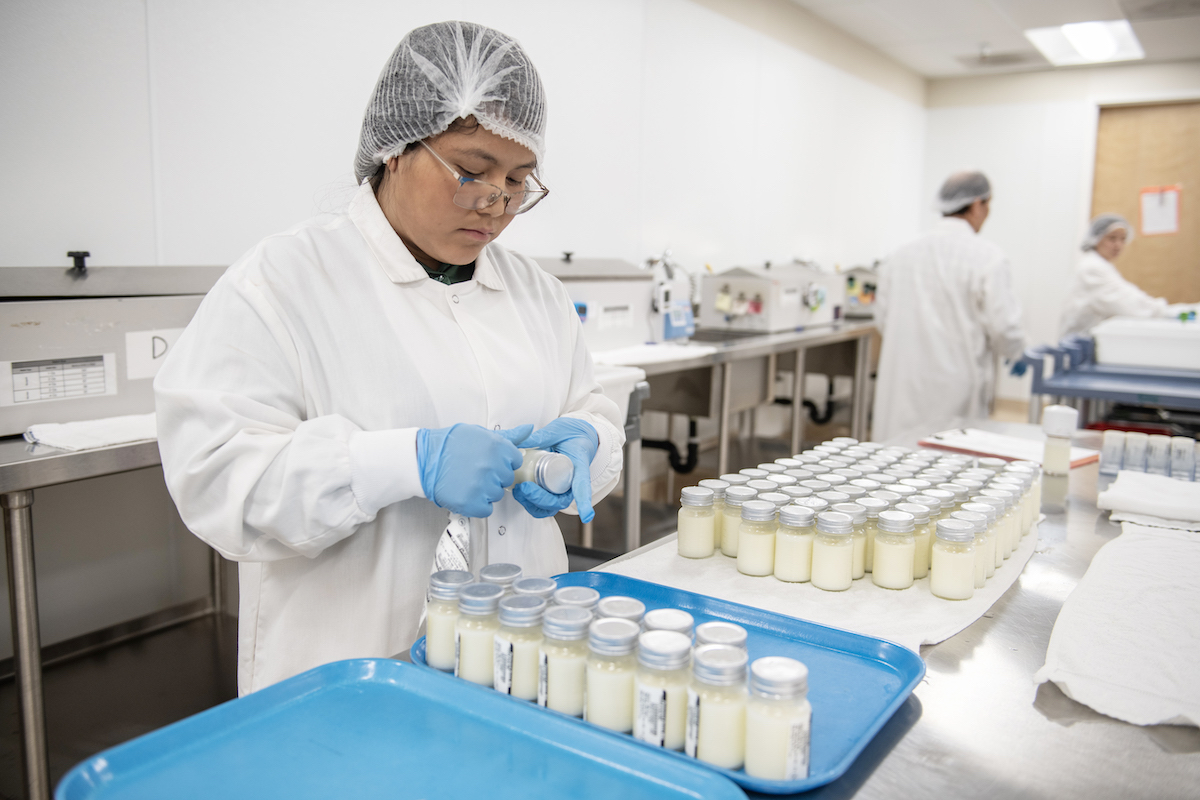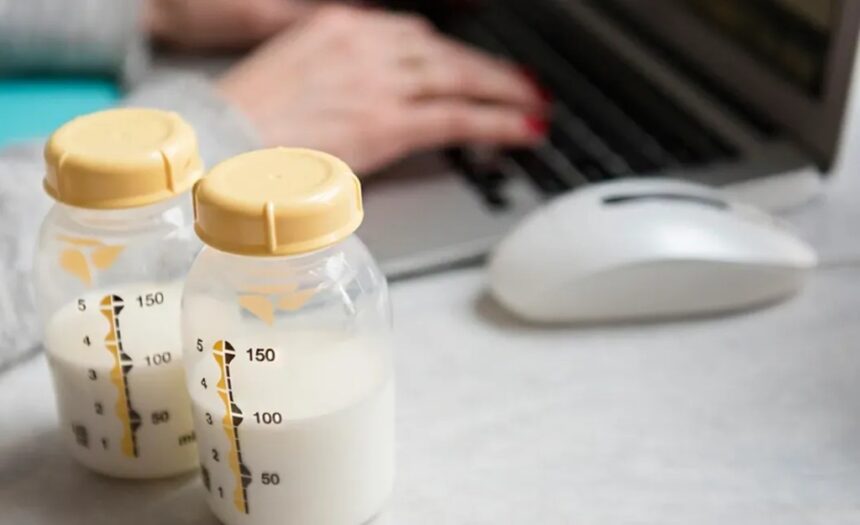BANGKOK – The Ministry of Public Health’s Department of Health is encouraging mothers who struggle with low breast milk supply to use donor milk from certified breast milk banks.
Dr. Amporn Benjaponpitak, the DoH’s director general, warned that breast milk bought online can be contaminated and risky for infants. She explained that milk sold on the internet may not be screened or pasteurized to remove viruses and bacteria. This lack of safety checks can make the milk unsafe for babies.
This warning follows news of people selling and buying human milk online. Reports have highlighted that some mothers in the United States earn money by selling their milk, not only to babies but also to bodybuilders who see it as a natural protein source.
Dr. Amporn pointed out that unscreened, unpasteurized milk poses many health risks. Since breast milk is a body fluid, it can carry germs that cause diseases like HIV, hepatitis B and C, and syphilis. She stressed that even healthy-looking women can still pass infections through their milk.
For infants exposed to HIV through milk, there’s a high chance they will develop AIDS. Babies infected with hepatitis B or C often become lifelong carriers. If a baby receives milk from a mother with untreated syphilis, there’s a risk of damage to their eyes, liver, and brain.
Another concern is cytomegalovirus (CMV), which can cause serious illnesses in young babies, including tuberculosis. Dr. Amporn also mentioned that milk sold online may not be stored or shipped properly, increasing the chance of bacterial infections.
Pathogens like Listeria or E. coli may lead to vomiting, diarrhea, or even sepsis in newborns.
Using milk from another woman might affect the baby’s nutrition, since the composition of breast milk changes over time and from one mother to another. Babies might also have allergic reactions to donor milk, causing digestive issues.
Dr. Amporn emphasized that a mother’s breast milk is best, as it contains antibodies and enzymes that help babies fight infection and digest food. She encouraged mothers with extra milk to donate to milk banks at government hospitals or universities.
She also recommended that mothers who cannot produce enough milk use donor milk from certified banks, as these follow strict screening and pasteurization standards to keep the milk safe and nutritious. Each bottle is labelled with an expiry date, and storage conditions are monitored to protect quality.
Parents can talk with health staff at milk banks for advice on breastfeeding. Dr. Amporn recommended breastfeeding exclusively for the first six months, followed by safe complementary foods, and continuing up to two years or more if possible.

Why Breast Milk Banks are Safer
Dr. Lalitawadee Tungsuputi, a neonatologist and head of the Mothers’ Milk Bank at the Queen Sirikit National Institute of Child Health (QSNICH), explained the difference between milk bank donations and milk sold online.
She said that every donor at QSNICH undergoes health screenings with each donation, and all donated milk is tested and pasteurized before being given to babies.
She shared that donated milk is dispensed by prescription according to international guidelines, like those from the Human Milk Banking Association of North America (HMBANA). The milk is checked for nutrients and can be frozen for up to six months.
Located in Bangkok’s Ratchathewi District, the QSNICH Mothers’ Milk Bank provides safe, pasteurized milk for sick or premature infants, as well as for babies whose mothers cannot produce enough milk. The bank also supports Rajavithi Hospital’s neonatal unit.
Dr. Lalitawadee noted that many mothers produce less milk in the first days after birth and may rely on donor milk from banks.
She shared that health organizations, including the World Health Organization and the American Academy of Pediatrics, recommend milk bank donations as the best substitute if a mother’s milk is not available.
Breast milk supports babies’ health by protecting against infections and promoting growth and development. It lowers the risk of necrotizing enterocolitis, a serious gut condition in premature babies.
Healthy mothers with an oversupply of milk and who have delivered in the last four months are invited to donate to the QSNICH bank.

Breast Milk Screening
Other breast milk banks are located in several public hospitals and universities, including Ramathibodi Hospital, Siriraj Hospital, Chiang Mai University, Srinagarind Hospital in Khon Kaen and Songklanagarind Human Milk Bank. Thammasat University Hospital will soon have its bank.
Around 5,000 to 6,000 infants in Thailand use donor milk from these banks, which is about one percent of the half-million babies born each year. Dr. Lalitawadee pointed out that cultural beliefs about milk kinship can keep some Muslim women from donating or receiving donor milk in Thailand.
Donors are screened for diseases like HIV, hepatitis B and C, and syphilis, and are checked for medication or substance use that could affect milk safety. They must follow hygiene rules and collect, store and transport their milk carefully.
Staff teach safe and clean pumping and storage methods, and stress the importance of sterilizing equipment. Breast milk banks do not pay donors, and donated milk is given free to the babies who need it most.
Informal sharing, where mothers share or use donated milk from friends, family or online groups, is not as safe as using milk from a certified bank. Dr. Lalitawadee explained that this practice can expose babies to diseases and substances found in the donor’s milk. Informally shared milk is not tested or pasteurized, so there are no guarantees about safety.
She encouraged mothers with extra milk to donate to a milk bank instead. While breast milk is the healthiest option, it is safest when it comes directly from the baby’s mother or a certified milk bank.














